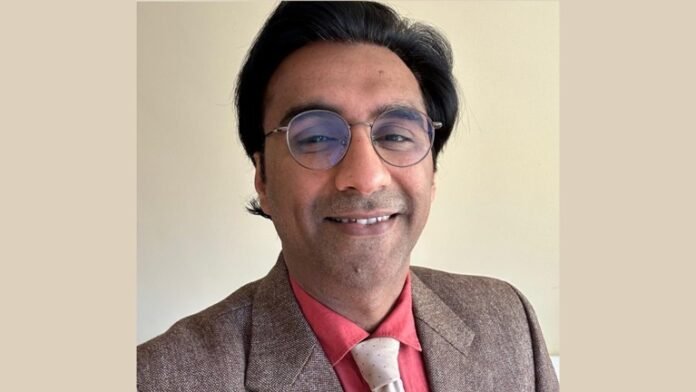A U.S. judge has blocked the deportation of an Indian researcher who was detained on suspicion of having ties to Hamas, the Palestinian militant group. The decision marks a significant moment in the case, highlighting the delicate balance between national security concerns and an individual’s rights within the U.S. judicial system. The case has sparked widespread debate about the legal processes surrounding allegations of terrorism, civil liberties, and the treatment of foreign nationals in the United States.
The Case of the Indian Researcher
The researcher in question, whose identity has not been publicly revealed, was detained by U.S. immigration authorities after being accused of having connections to Hamas, a group classified as a terrorist organization by the U.S. State Department. The individual, a scholar from India, had been in the United States on a visa to conduct research at a prominent American university.
Authorities had initially detained the researcher under suspicion of being involved with Hamas, alleging that their research activities were a cover for links to the militant group. However, no concrete evidence has been provided to substantiate these claims, and the researcher has denied any involvement with Hamas. Legal representatives have asserted that the accusations were based on tenuous grounds and lacked substantive proof.
The legal proceedings surrounding the case have drawn attention due to the tension between national security concerns and the right to due process for individuals facing accusations, particularly in cases involving foreign nationals. The U.S. government’s attempts to deport the researcher have been challenged in court, leading to the recent ruling.
The Judge’s Ruling
The judge, presiding over the case in a federal court, ruled that the researcher could not be deported at this time. The decision was based on concerns that deportation would violate the individual’s right to a fair trial, as well as the need to provide adequate legal representation and an opportunity to contest the allegations. The judge emphasized that deportation under these circumstances could lead to irreversible harm to the researcher, particularly given the severity of the accusations.
The ruling has been viewed as a win for civil liberties advocates, who have expressed concerns about the potential for due process violations in cases involving national security and terrorism-related allegations. Legal experts argue that while national security is a critical concern, it is equally important to ensure that individuals have the opportunity to defend themselves against accusations, especially when those accusations carry the possibility of severe consequences, such as deportation or imprisonment.
The judge also highlighted the need for further investigation into the allegations against the researcher, noting that the U.S. government must present credible evidence before taking any action that could result in the individual’s removal from the country. The ruling has sparked discussions about the thresholds for deportation in cases involving accusations of terrorism, particularly when the evidence is not clear-cut.
The Debate Over National Security and Civil Liberties
The case has ignited a broader debate about the tension between national security concerns and individual rights. While there is broad agreement that terrorism and national security threats must be taken seriously, critics argue that there is a growing trend of overreach by immigration authorities in their efforts to combat terrorism. This has raised concerns about the impact of such actions on civil liberties, particularly for foreign nationals who may not have the same legal protections as U.S. citizens.
Supporters of the researcher’s right to remain in the U.S. have pointed to the importance of upholding the principles of fairness and justice, regardless of the individual’s nationality. They argue that accusations of terrorism must be backed by clear, concrete evidence and that individuals should not be deported based on vague or unproven allegations.
On the other hand, national security advocates stress the importance of vigilance in the fight against terrorism. They argue that even the suspicion of ties to groups like Hamas warrants careful scrutiny, given the group’s involvement in violent actions and its designation as a terrorist organization by the U.S. government. For many, the issue revolves around how to balance national security with due process, a delicate balance that courts and lawmakers continue to grapple with in terrorism-related cases.
Broader Implications
The case also highlights the challenges that U.S. immigration authorities face when dealing with allegations of terrorist affiliations, particularly when foreign nationals are involved. The complexities of such cases, involving both national security and international law, make them difficult to navigate, with significant implications for the individuals involved.
For the researcher, the decision represents a moment of relief, but the legal battle is far from over. While the deportation has been blocked for now, the individual still faces the challenge of clearing their name and proving their innocence in the ongoing legal proceedings. The case will likely continue to unfold, with the potential for further court challenges and appeals.
Moreover, the case is expected to continue to fuel discussions about how the U.S. handles accusations of terrorism and the balance between protecting national security and upholding fundamental rights. As the legal system works through the complexities of this case, it serves as a reminder of the ongoing struggle to ensure that justice is served while also safeguarding the principles of fairness and due process.
The decision to block the deportation of the Indian researcher highlights the complexities surrounding national security concerns and individual rights in the United States. While the government has expressed its intent to protect the country from potential security threats, the case underscores the importance of ensuring that individuals are not unjustly detained or deported based on unsubstantiated claims. As the legal proceedings continue, the case will likely serve as a crucial point of reference in discussions about the rights of foreign nationals, due process, and the fight against terrorism in the U.S.

